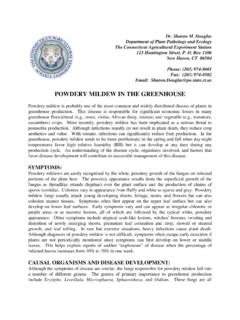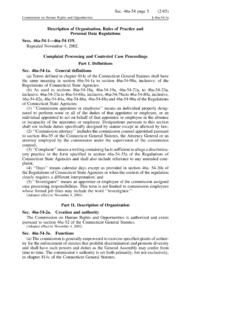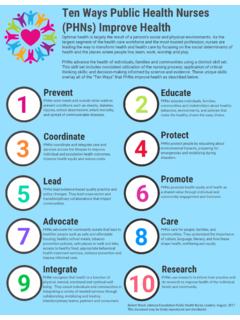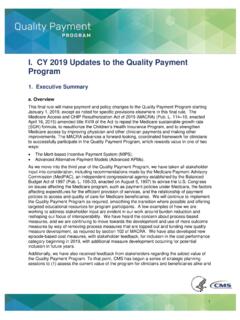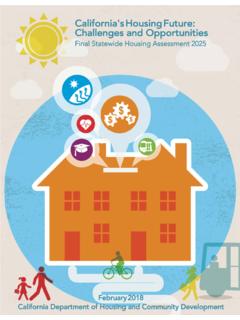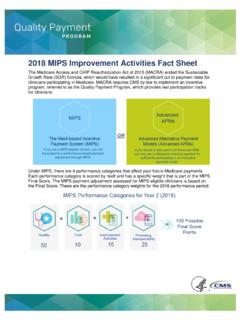Transcription of Culture and Behavioral Health Service Delivery: An ...
1 Culture and Behavioral Health Service delivery : An Analysis of Focus Group Findings July 2009 Developed by the DMHAS Office of Multicultural Affairs in collaboration with the Yale University Program for Recovery and Community Health 2 Executive Summary Background. This report summarizes focus group findings conducted as part of a DMHAS Office of Multicultural Affairs Health Disparities Initiative. Findings are based on focus groups that were conducted around the state of Connecticut during an 18 month period in 2007 and 2008. Focus groups explored people s experiences with care and the ways in which their cultural beliefs and values were, and were not, incorporated through out the care process. In all, 25 focus groups were conducted across the state with African American, Latino American, White American, Asian American, Youth, LGBTQ (lesbian, gay, bi-sexual, transgender, and queer) individuals, and culturally mixed groups.
2 Method. To begin the data analysis process, Consumer Research and Evaluation Network (CREN) members participated in a day-long, qualitative data analysis training. Following this training, five data analysis teams, comprised of PRCH faculty and staff and CREN members, were formed with each team analyzing one or more of the focus group types. Teams met between 3-5 times to analyze their group s transcripts and then all five teams met to identify primary themes across all transcripts. Results. Qualitative data analysis revealed eight overarching themes across the seven focus group types. Themes address both general clinical care, as well as cultural competence-related areas. Theme #1: Positive Experiences with Care: Across many focus groups, participants reported satisfaction with services and positive feelings about care.
3 Participants discussed feeling listened to and understood by their clinicians, and many reported that they were getting things done. A prominent sub-theme identified was that many respondents who reported satisfaction with care reported receiving services from ethnically and or culturally similar programs or providers. There were also instances in which participants not seen by ethnically similar providers also reported positive experiences with care. Theme #2: Bridges and Barriers to Trust. In all focus groups, participants discussed a variety of factors that either fostered or impeded the development of trust and a positive working relationship with providers. A lack of confidentiality was one such factor. Respondents raised concerns about information discussed being shared with other providers or being used against them.
4 Also impeding the development of trust, several respondents discussed some providers being too strict with rules and this communicating that they do not really want to help them. Respondents in this and other focus groups noted that provider willingness to bend the rules -even a little-would help to establish trust and communicate a willingness to be helpful. In turn, this would contribute to respondents opening up with providers and sharing more in sessions. Respondents discussed ethnic similarity as one factor that facilitated the development of trust. Theme #3: Things Left at the Door or Not Discussed in Treatment. Many respondents talked about not leaving anything at the door as a means of getting help and getting better.
5 In a majority of focus groups, however, respondents reported leaving a variety of issues at the door and not discussing them with providers. For many, not discussing certain topics was directly related to the previous theme of trust and the degree to which respondents felt understood by their providers. This was particularly true for African American respondents 3who consistently reported that they did not discuss race or race related issues. Respondents discussed a variety of additional issues that were not discussed in care. Theme #4: Stereotyping and Negative Experiences with Care. Across most focus groups, respondents reported a number of negative experiences with care in which they felt stereotyped, disrespected, or dismissed by providers.
6 Many respondents reported similar experiences in broader society and some noted that hospitals and Health care systems were a microcosm of broader society, and given this, they were not surprised by their negative care experiences. In addition to reports of feeling stereotyped and disrespected, respondents discussed a range of experiences in which they felt care was not useful, providers were disrespectful, their expressions of distress were misunderstood, they were not listened to, or they felt invisible to providers Theme #5: Language Issues/Barriers. Language barriers emerged as a prominent theme in all focus groups conducted with individuals of Latino origin. Participants discussed frustrations and difficulties they had participating in treatment when services were offered in English only.
7 Further, many noted that not being able to communicate with providers contributed to feelings of isolation, loneliness, depression, anger, and, for many, resulted in their feeling as if they were being choked out of the system. Theme #6: Persistent Self-Advocacy as a Means of Getting Needs Met. Across all focus groups, respondents discussed a number of experiences in which they exercised persistence, voice, or self-advocacy as a means of facilitating their needs being met. For many, the need to engage in self-advocacy emerged from situations in which they felt that providers were not listening to them or they were pushing recommendations that were different from what they wanted or felt they needed. Many stated that they believed that if they expressed their needs consistently enough, and with intense emotion if necessary, providers would eventually listen.
8 Theme #7: System Challenges/Barriers to Care. System challenges and barriers to care were prominent themes that emerged in all focus groups. Respondents discussed a range of experiences that they felt impeded their being able to receive effective care and address their needs. Examples of such experiences include, 1) providers carrying heavy caseloads and appearing burned out; 2) difficulties getting into detoxification programs due to not having used enough; and 3) paperwork and administrative problems getting in the way of providers being helpful. Theme #8: Clinician and Agency Recommendations. In all focus groups, respondents offered a range of recommendations that cluster in seven different areas including: 1) Connect with community; 2) Develop peer-based services and supports; 3) Develop additional services and supports; 4) Enhance direct care; 5) Offer more provider education and training; 6) Offer more Service user education and training; and 7) Enhance agency environment/physical.
9 Discussion and Implications. The findings discussed in this report highlight the complex and dynamic role of race, ethnicity, and Culture in the helping relationship and in the development of services and systems that are responsive to the worldviews and values of diverse groups. Eight overarching themes are discussed which summarize a range of positive, as well as negative, care experiences. Further, it is important to note that many of the negative experiences discussed exist within the context of similar themes in the broader 4cultural competence and multicultural Health literature nationwide. Thus, themes that suggest racism, bias, and discrimination are not unique to Connecticut; rather they mirror social patterns that have challenged Health care and Culture in general for generations.
10 Nevertheless, the negative experiences discussed in this report represent an important call to action. Needed are unique and creative interventions designed to enhance attention to Culture and Service equity. Echoing themes in the recovery literature, findings suggest that, when asked, Service users know what works for them. This was well illustrated by the range of recommendations for improving care offered by respondents. While all may not be feasible to implement now, some likely represent low-hanging fruit that can be implemented with limited system effort or costs. To further evolve and prioritize recommendations offered by respondents, it is recommended that an Eliminating Disparities Subcommittee of the Multicultural Advisory Council (MCAC) be formed.




